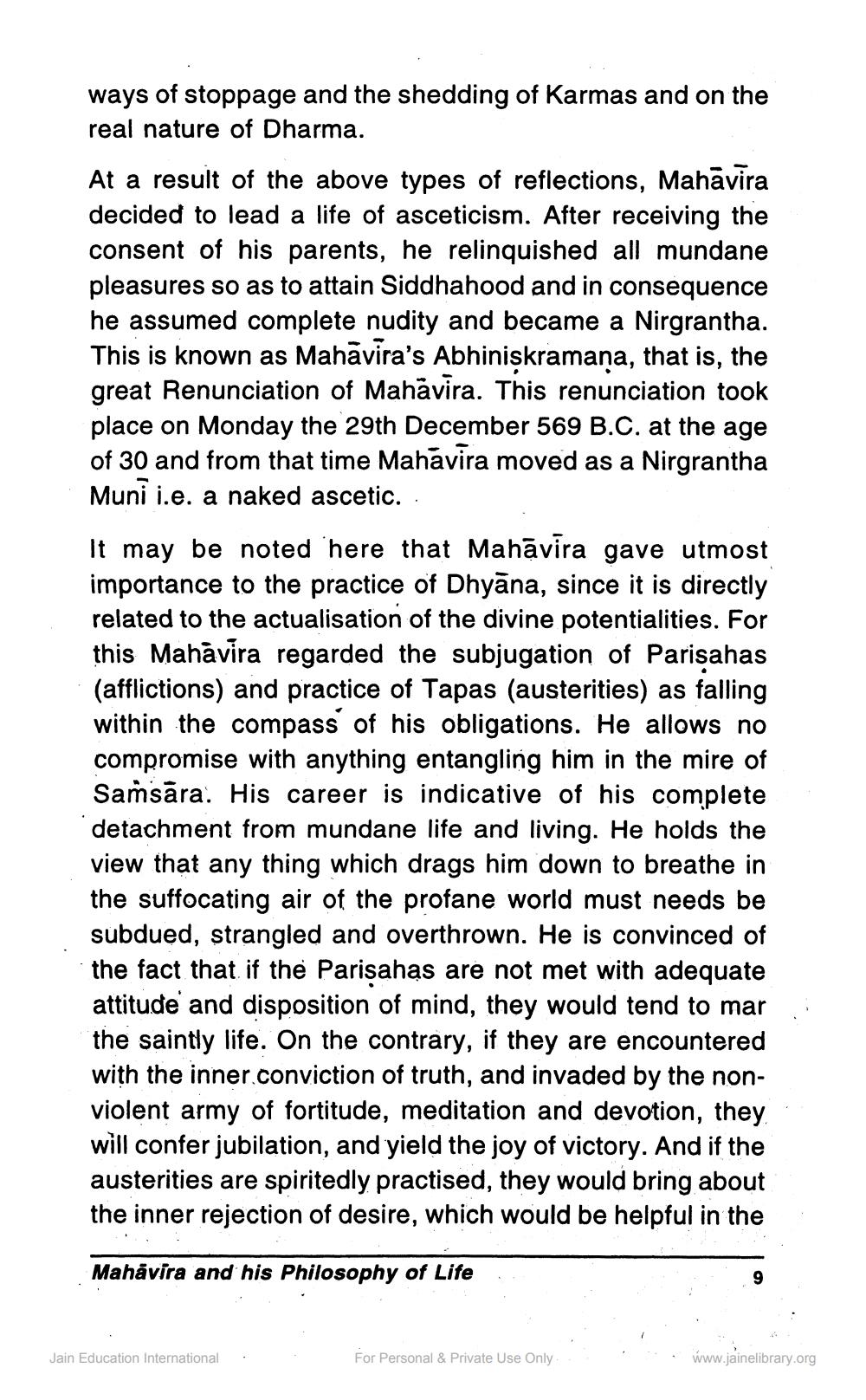________________
ways of stoppage and the shedding of Karmas and on the real nature of Dharma.
At a result of the above types of reflections, Mahavira decided to lead a life of asceticism. After receiving the consent of his parents, he relinquished all mundane pleasures so as to attain Siddhahood and in consequence he assumed complete nudity and became a Nirgrantha. This is known as Mahavira's Abhinişkramaṇa, that is, the great Renunciation of Mahavira. This renunciation took place on Monday the 29th December 569 B.C. at the age of 30 and from that time Mahavira moved as a Nirgrantha Muni i.e. a naked ascetic.
It may be noted here that Mahavira gave utmost importance to the practice of Dhyana, since it is directly related to the actualisation of the divine potentialities. For this Mahavira regarded the subjugation of Parisahas (afflictions) and practice of Tapas (austerities) as falling within the compass of his obligations. He allows no compromise with anything entangling him in the mire of Samsara. His career is indicative of his complete detachment from mundane life and living. He holds the view that any thing which drags him down to breathe in the suffocating air of the profane world must needs be subdued, strangled and overthrown. He is convinced of the fact that if the Parisahas are not met with adequate attitude and disposition of mind, they would tend to mar the saintly life. On the contrary, if they are encountered with the inner conviction of truth, and invaded by the nonviolent army of fortitude, meditation and devotion, they will confer jubilation, and yield the joy of victory. And if the austerities are spiritedly practised, they would bring about the inner rejection of desire, which would be helpful in the
Mahavira and his Philosophy of Life
Jain Education International
For Personal & Private Use Only
9
www.jainelibrary.org




